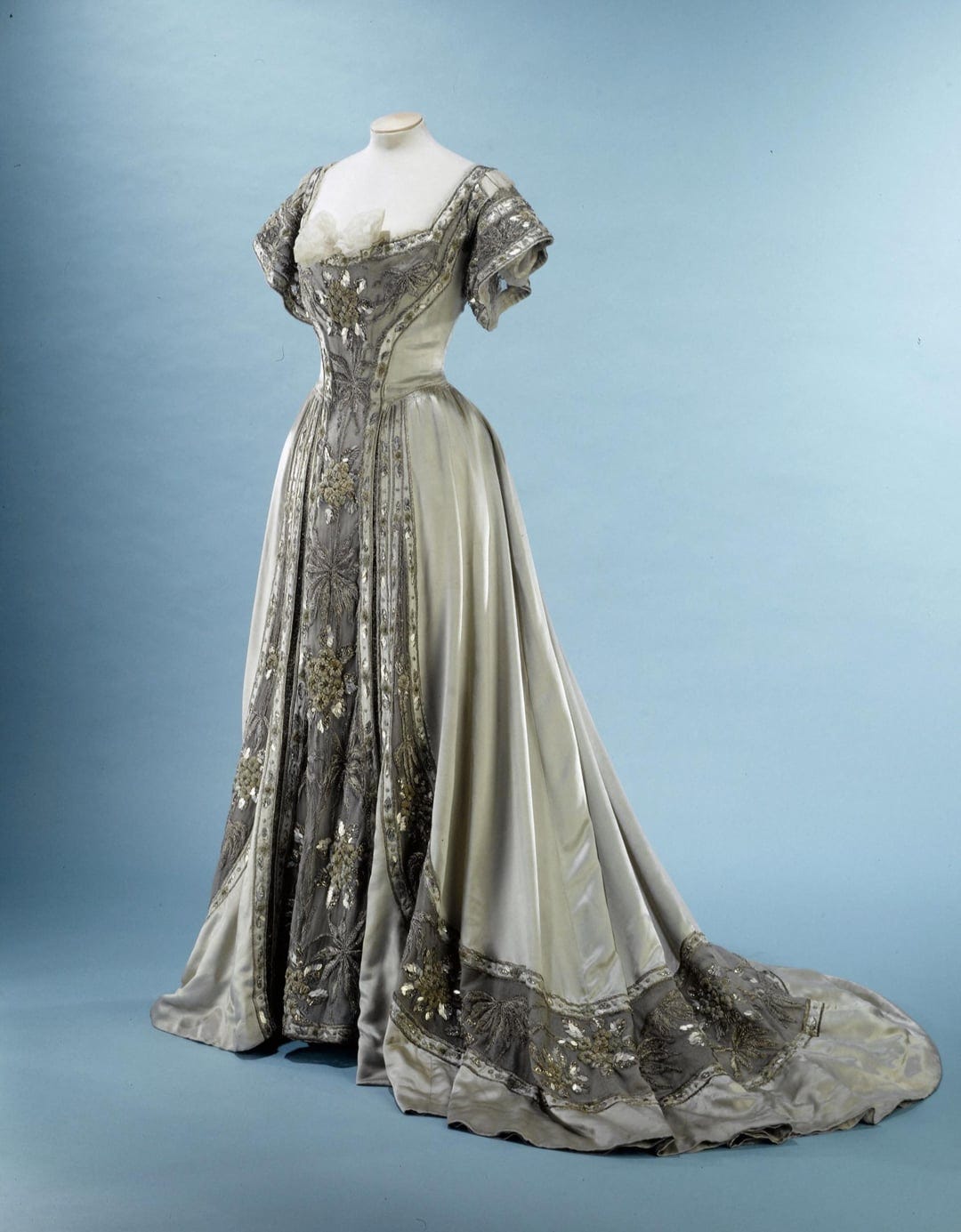Lily Bart's Virginity
Isn't it weird when you think about it?
This post will have spoilers for House of Mirth. I don’t care about spoilers myself, and I think it’s a little silly to expect people to be hush-hush about a century-old book, but maybe y’all disagree. If you want to read Wharton like it’s 1905, go no further.
It’s pretty clear that Lily Bart died a virgin. Which is a little odd, because she’s at least thirty when she dies, she has always been incredibly attractive, she’s repeatedly described as pleasure-seeking, and she is dead broke. And although obviously fin-de-siècle Upper Ten society strictly limits women’s sexual exploration to serial adultery, it’s not like Lily doesn’t do a lot of other things that unmarried girls aren’t supposed to do, like gambling, and drugs, and killing herself. Why does this pleasure-seeking, somewhat unscrupulous woman die without ever tasting life’s greatest pleasure?
One reason is that she’s pretty canny. She has a lot to gain from her virginity. Her sexuality is something she could cash out on short-term, to the tune of a few thousands, but her apparent virginity is an asset that could get her millions.
But apparent virginity is not synonymous with actual virginity. In New York high society, apparent virginity is much more fragile than actual virginity. Lily loses her social status as a virgin, without getting the doubtful benefit of enjoying George Dorset’s body—or the actual benefit of enjoying George Dorset’s protection. So “social status” doesn’t cover it.
Another reason is that effective female-controlled birth control hasn’t been invented. But Lily takes a lot of risks for other pleasures.
It’s possible that she’s just frigid. She’s no Dorothea Brooke, brimming with physical passion (Eliot makes this abundantly clear, without the need for any non-Victorian impropriety). None of Lily’s pleasures are anything like Dorothea’s “pagan, sensuous” love of horseback riding. Obviously, Dorothea has the self-control and black-and-white moral thinking to keep her sex life strictly marital, but it’s just as obvious that Dorothea couldn’t hold out til she was thirty; her motivation for her teen wedding definitely has a little bit of “better to marry than to burn” in the mix.
Another reason is that Lily is just incredibly picky about sex. She’s picky about everything else! But, while being among rich people allows you to exercise your pickiness about food and flowers and gowns, proximity to money does not automatically lead to availability of attractive men (which is why the married women pass Ned Silverton around like an office birthday card).
As I think about this, I realize that calling Lily Bart “pleasure-seeking” is a little inaccurate. What pleasures does she sell her soul for, when she’s in the soul-selling game? Bridge, tea, good cigarettes, good food, quiet luxurious bedrooms. Definitely pleasures, but pleasures in the “comfort” class, not the “ecstatic” class. Probably Lily only transcends comfort-seeking in her love of scenery and—I’m shallow enough to say this—her love of gowns. I loved the detail that Lily was a Doucet girl, not a Worth girl. The House of Worth made beautiful clothing, obviously, but it can err towards the stiff, the froufrou, the overdone. Doucet gowns have more flow, more movement—frankly, more sex—Worth gowns can tend to wear the woman; Doucet gowns showcase the woman.
To me, that’s the saddest thing about Lily, and the hardest to empathize with: that all of her self-degradation is done to play bridge and drink tea. I understand why people give up their integrity for pleasure, it’s not a good thing to happen, but it’s understandable. What’s really pathetic about Lily is that she gives up sexual pleasure in exchange for comfort. She wastes, not only her soul, but her capacity to enjoy.



I wonder if she is the kind of person who loves esteem much more than direct sensations. For example, I don't remember her ever mentioning enjoying food or the way a fabric feels. But she does often think how a beautiful environment enhances how others would perceive her. All of her prospects in the book would have had serious downsides socially or personality-wise, and I'm not sure sensual experience matters much in her accounting.
Thank you for the spoiler warning! You indeed have at least one reader who cares about 120-year-old spoilers. Bookmarking this post to read once I've finished the book.
(I believe this is an acceptable excuse for the sin of commenting on posts one hasn't read.)